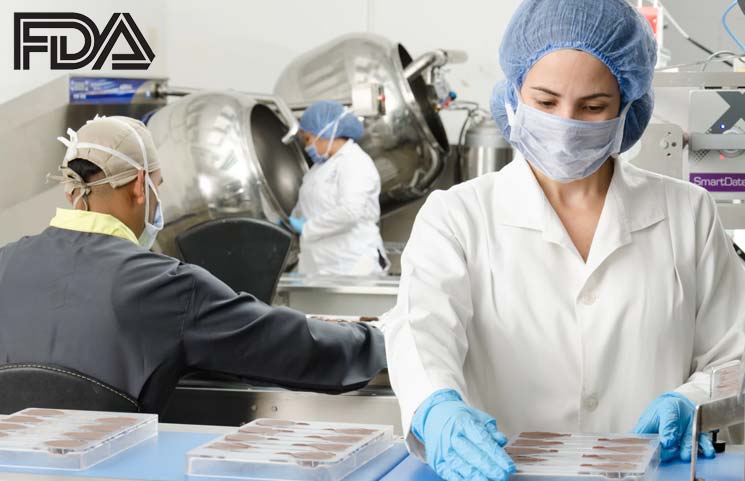- Employees should be notified of any other employee who is infected, without breaking confidentiality protocols.
- There is no shortage in food presently, and the virus cannot be transfer via food supply.
Coronavirus (COVID-19) has caused panic around the world, and the U.S. Food and Drug Administration recently released some updates regarding concerns in the food industry. In their statements, they have also provided a FAQ page and held a stakeholder call regarding the safety of workers, food supply, and manufacturers. To reassure the public, deputy commissioner of the Office of Food Policy and Response stated,
“The U.S. food supply remains safe, there are no shortages [and] there is no evidence of food or food packaging being associated with the transmission of COVID-19.”
However, the FDA has chosen to make some changes to maintain the safety of the country. On transmission, the FDA explained that COVID-19 cannot be transferred through the food supply.
“Unlike foodborne gastrointestinal (GI) viruses like norovirus and hepatitis A that often make people ill through contaminated food, SARS-CoV-2, which causes COVID-19, is a virus that causes respiratory illness. Foodborne exposure to this virus is not known to be a route of transmission.”
Though protocols may vary from state to state, the FDA says that manufacturers should maintain the protocols established by state and local departments.
Current employees should be informed of any infected employee, and coworkers without violating confidentiality, stated director of the Center for Food Safety and Applied Nutrition Susan Mayne. Additionally, any and all employees are required to keep up with the adherence to the CDC guidance.
There is presently a temporary reduction in foreign inspections along with a hold on on-site supplier verification audits as required by the Food Safety Modernization Act. Instead, the sampling and testing, or the review of food safety records, is presently acceptable for proof that the potential hazard has been either “significantly minimized or prevented.”
Michael Rogers, the assistant commissioner for Human and Animal Food Operations, Office of Regulatory Affairs, further stated that this decision doesn’t mean inherently that the FDA won’t perform inspections. Instead, Rogers said,
“The FDA will be conducting mission-critical inspections where and when they are needed — if there is any way to get there and accomplish them in a way that does not put anyone at risk.”
The Department of Homeland Security (DOHS) consider both agriculture and the food industry are considered “critical sectors” by the Department of Homeland Security (DOHS). Mayne also stated,
“The FDA and corresponding agencies will “do everything possible to make sure food and agriculture continues production and manufacturing without hindrance.”














